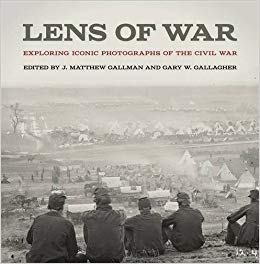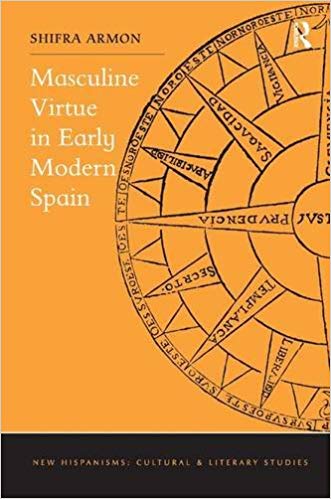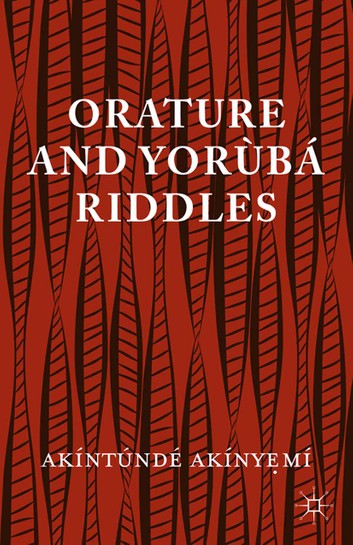
Lens of War: Exploring Iconic Photographs of the Civil War (Uncivil Wars)
edited by
J. Matthew Gallman
J. Matthew Gallman, Professor in History. Available from Amazon.
Lens of War, grew out of an invitation to leading historians of the Civil War to select and reflect upon a single photograph. Each could choose any image and interpret it in personal and scholarly terms.
The result is a remarkable set of essays by twenty-seven scholars whose numerous volumes on the Civil War have explored military, cultural, political, African American, women’s, and environmental history.
The essays describe a wide array of photographs and present an eclectic approach to the assignment, organized by topic: Leaders, Soldiers, Civilians, Victims, and Places. Readers will rediscover familiar photographs and figures examined in unfamiliar ways, as well as discover little-known photographs that afford intriguing perspectives. All the images are reproduced with exquisite care. Readers fascinated by the Civil War will want this unique book on their shelves, and lovers of photography will value the images and the creative, evocative reflections offered in these essays.
Contributors: Stephen Berry, William A. Blair, Stephen Cushman, Gary W. Gallagher, J. Matthew Gallman, Judith A. Giesberg, Joseph T. Glatthaar, Thavolia Glymph, Earl J. Hess, Harold Holzer, Caroline E. Janney, James Marten, Kathryn Shively Meier, Megan Kate Nelson, Susan Eva O’Donovan, T. Michael Parrish, Ethan S. Rafuse, Carol Reardon, James I. Robertson Jr., Jane E. Schultz, Aaron Sheehan-Dean, Brooks D. Simpson, Daniel E. Sutherland, Emory M. Thomas, Elizabeth R. Varon, Joan Waugh, Steven E. Woodworth.

Masculine Virtue in Early Modern Spain
edited by
Shifra Armon
Shifra Armon, Associate Professor in Spanish. Available here.
Masculine Virtue in Early Modern Spain extricates the history of masculinity in early modern Spain from the narrative of Spain’s fall from imperial power after 1640. This book culls genres as diverse as emblem books, poetry, drama, courtesy treatises and prose fiction, to restore the inception of courtiership at the Spanish Hapsburg court to the history of masculinity.
Refuting the current conception that Spain’s political decline precipitated a ‘crisis of masculinity’, Masculine Virtue maps changes in figurations of normative masculine conduct from 1500 to 1700. As Spain assumed the role of Europe’s first modern centralized empire, codes of masculine conduct changed to meet the demands of global rule. Viewed chronologically, Shifra Armon shows Spanish conduct literature to reveal three axes of transformation. The ideal subject (gendered male in both practice and law) became progressively more adaptable to changing circumstances, more intensely involved in currying his own public image, and more desirous of achieving renown.
By bringing recent advances in gender theory to bear on normative rather than non-normative masculinities of early modern Spain, Armon is able to foreground the emergence of energizing new models of masculine virtue that continue to resonate today.

Orature and Yoruba Riddles
edited by
Akíntúndé Akínyẹmí
Akíntúndé Akínyẹmí, Associate Professor in Languages, Literatures and Cultures. Available from Amazon.
Orature and Yorùbá Riddles takes readers into the hitherto unexplored undercurrents of riddles in Africa. Because of its oral-and all too often ephemeral-nature, riddles have escaped close scrutiny from scholars. The strength of the Yorùbá as the focus of this study is impressive indeed: a major ethnic group in Africa, with established connections with the black diaspora in North America and the Caribean; a rich oral and written culture; a large and diverse population; and an integrated rural-urban society.
The book is divided into six chapters for readers’ convenience. When read in sequence, the book provides a comprehensive, holistic sense of Yorùbá creativity where riddles are concerned. At the same time, the book is conceived in a way that each chapter could be read individually. Therefore, those readers seeking understanding of a specific type of riddle may target a single chapter appearing most relevant to her/his curiosity.